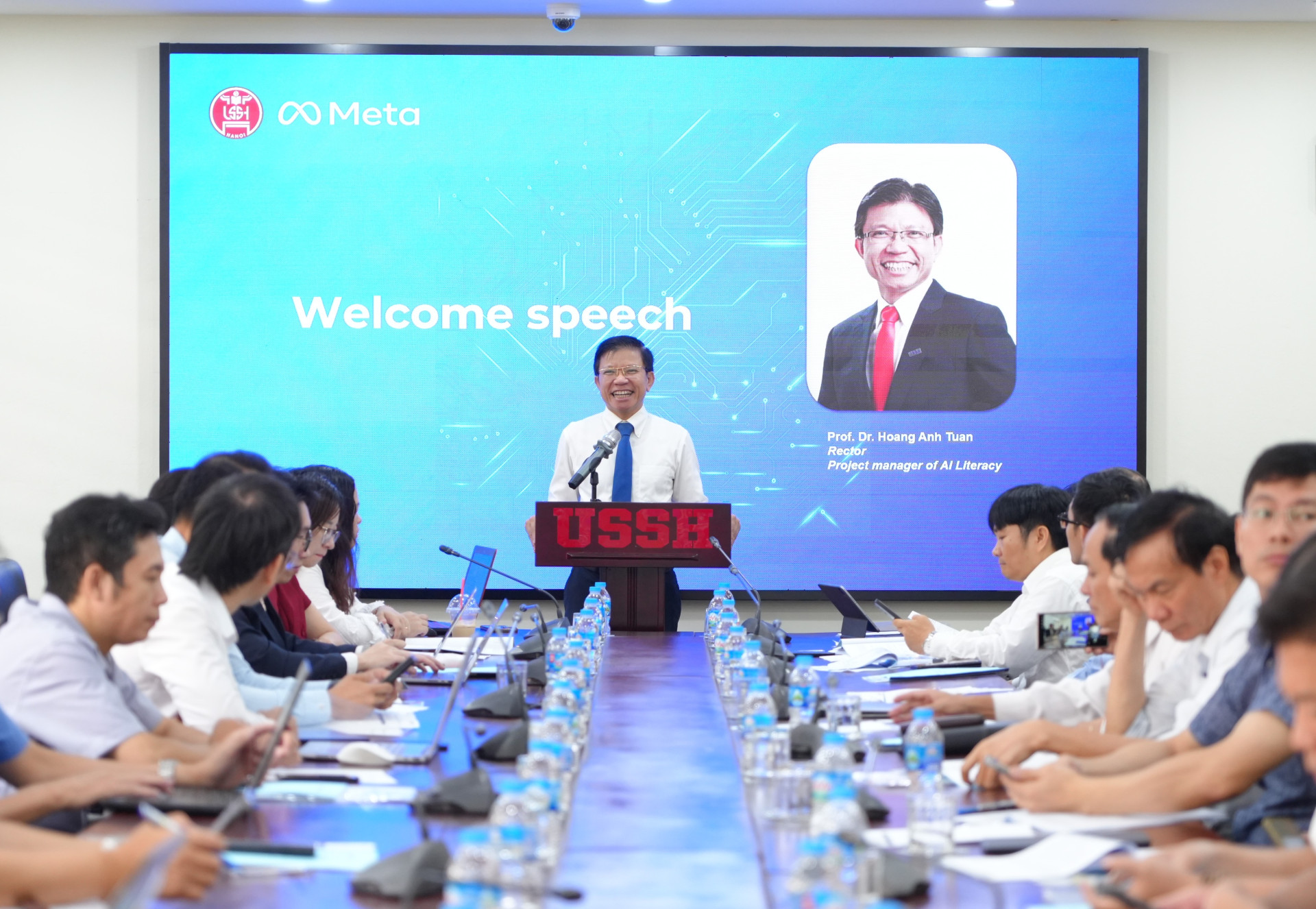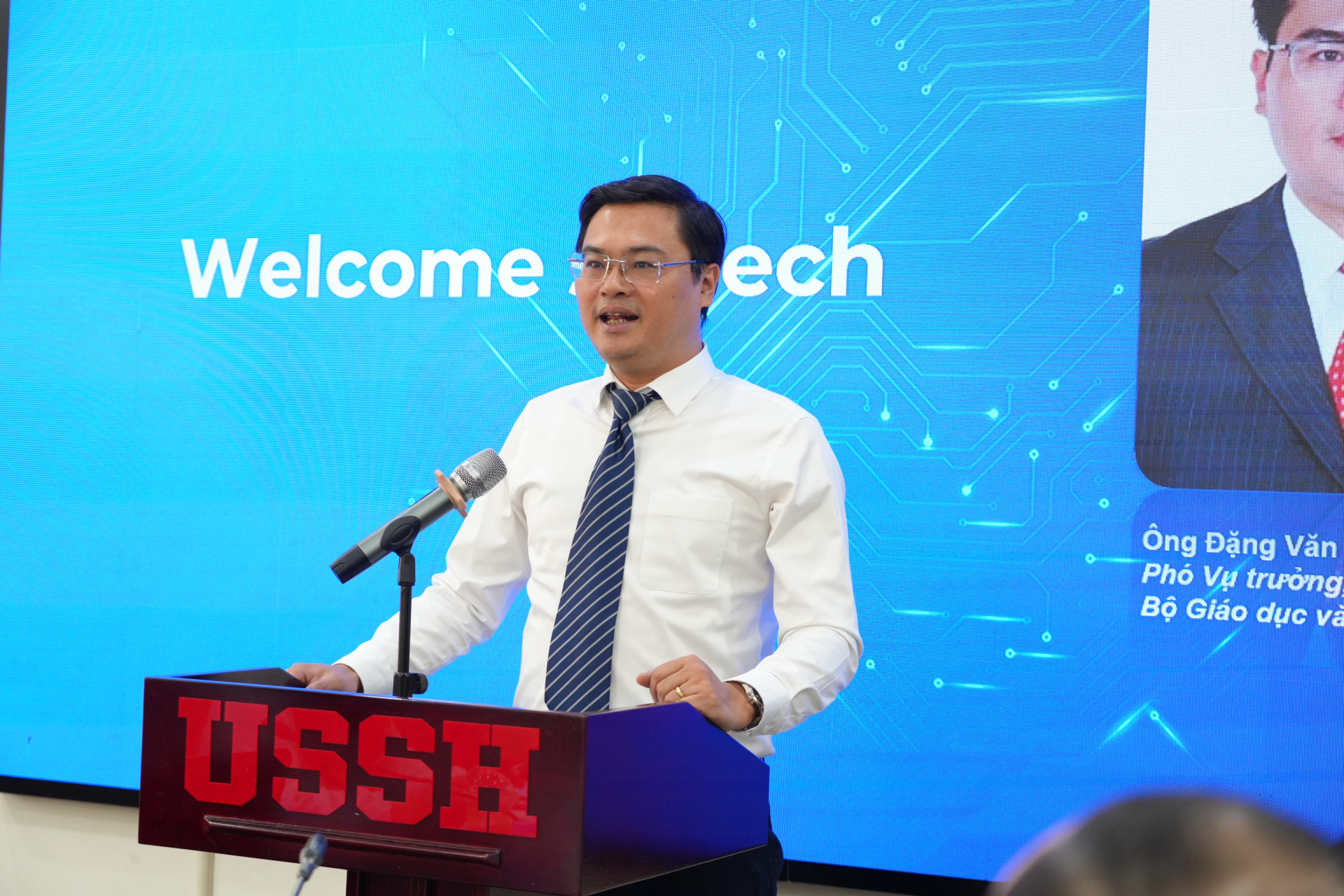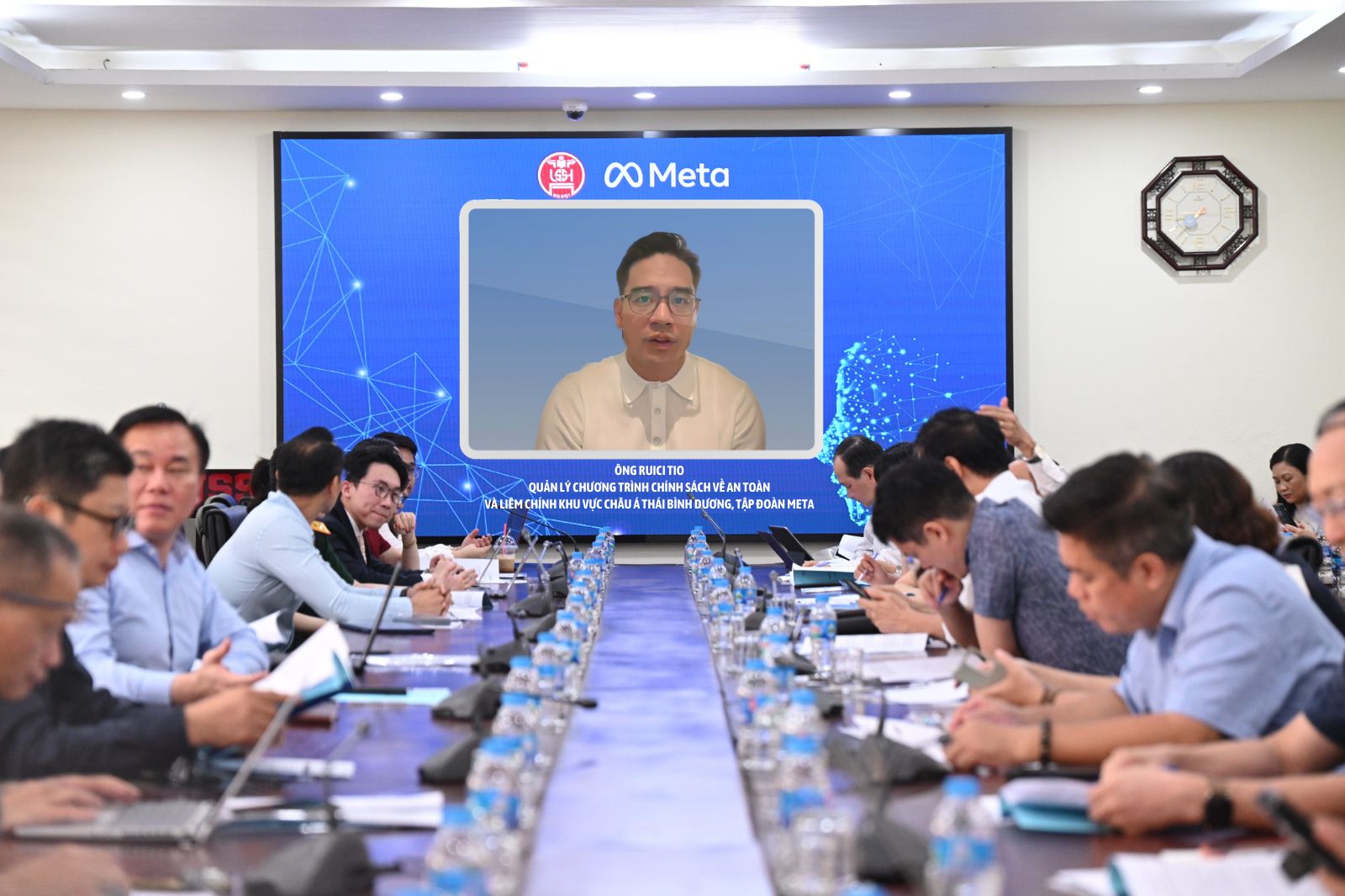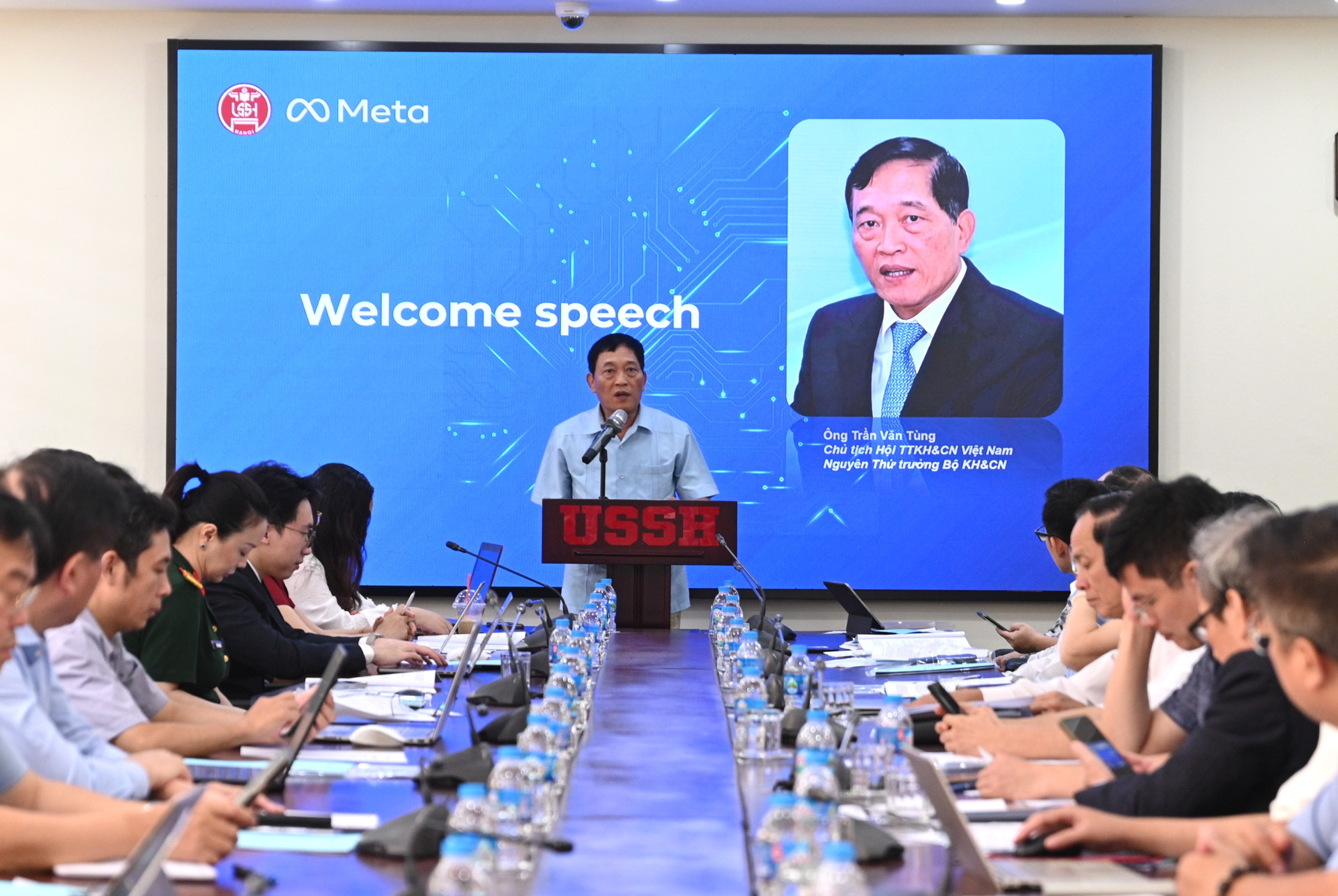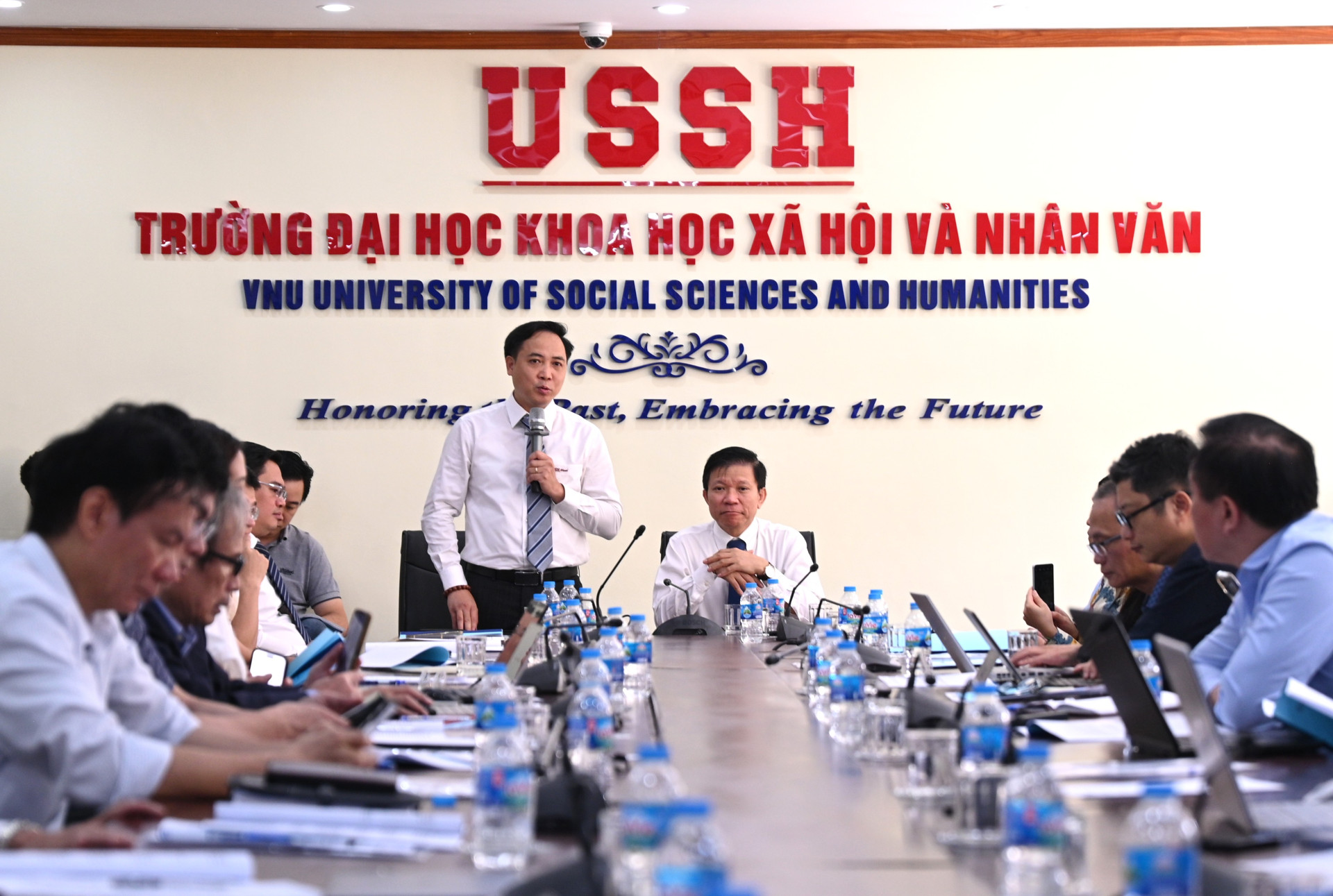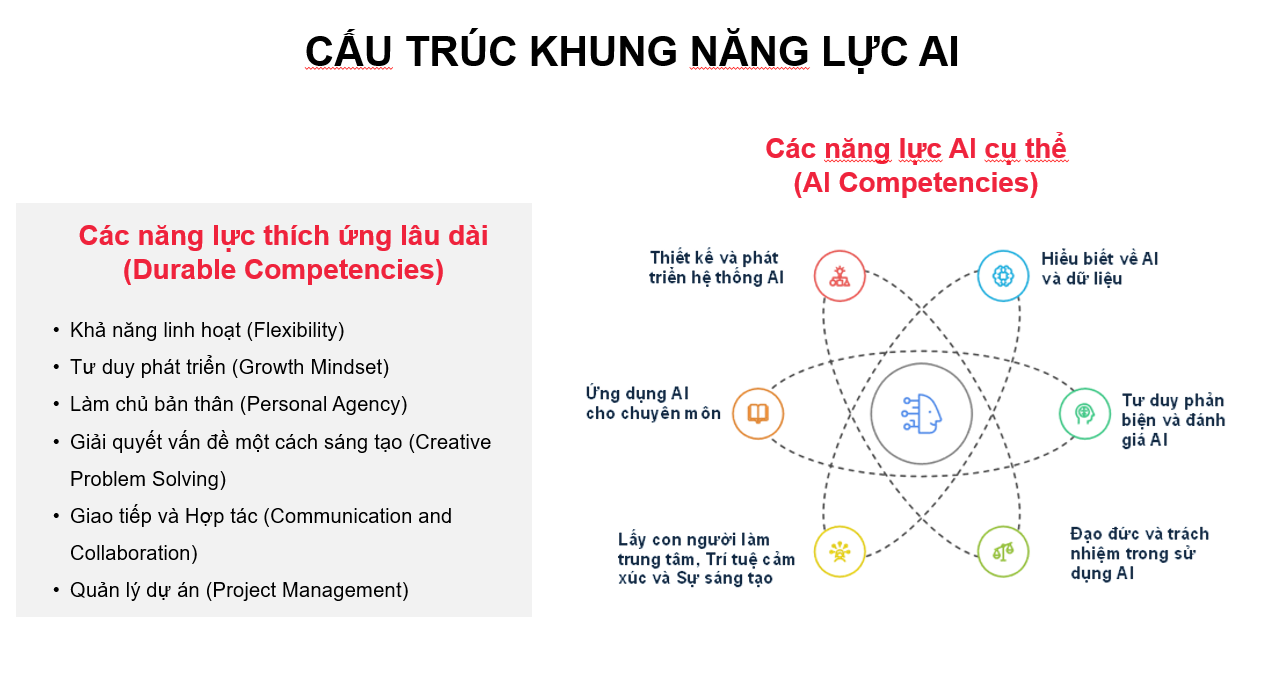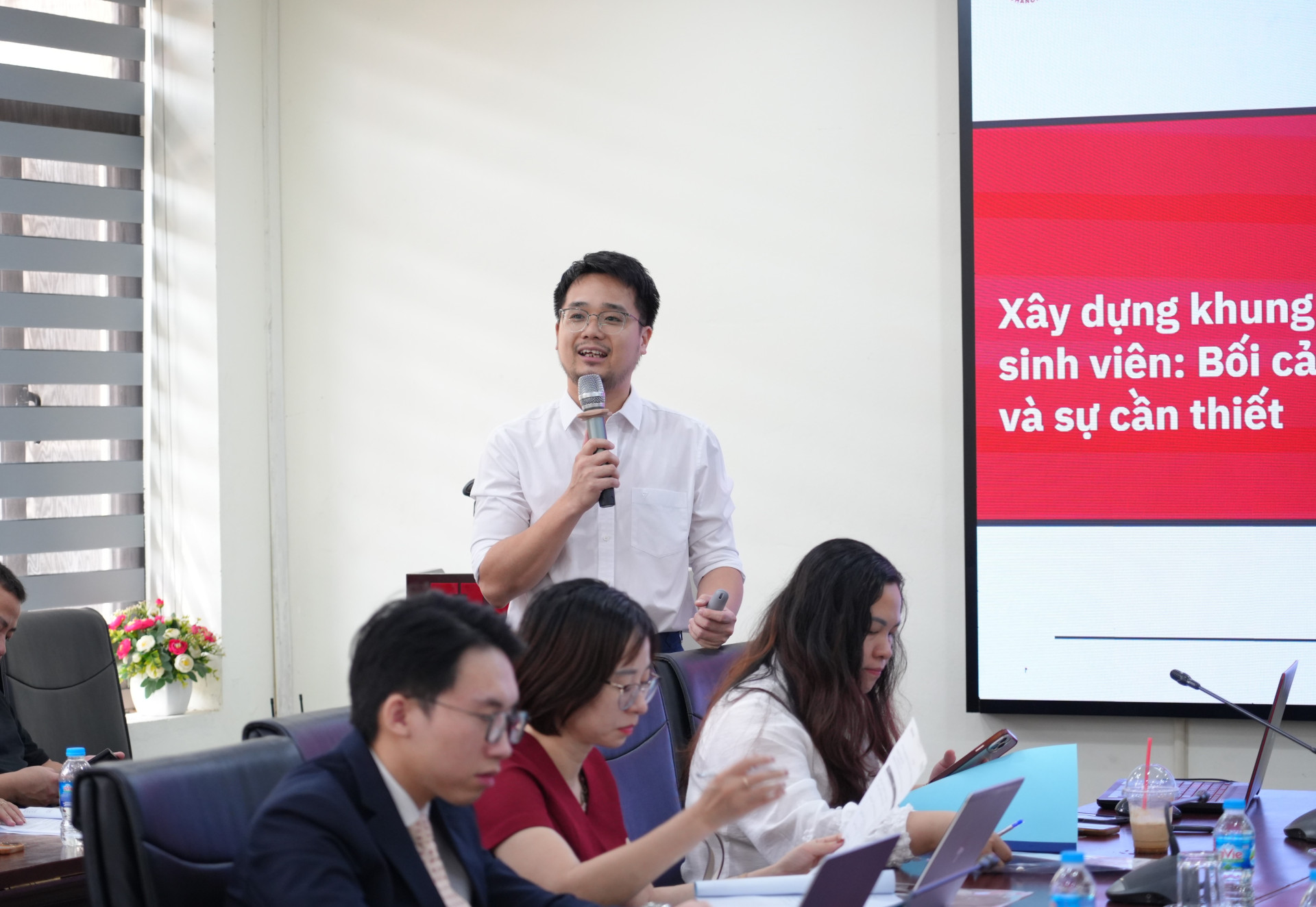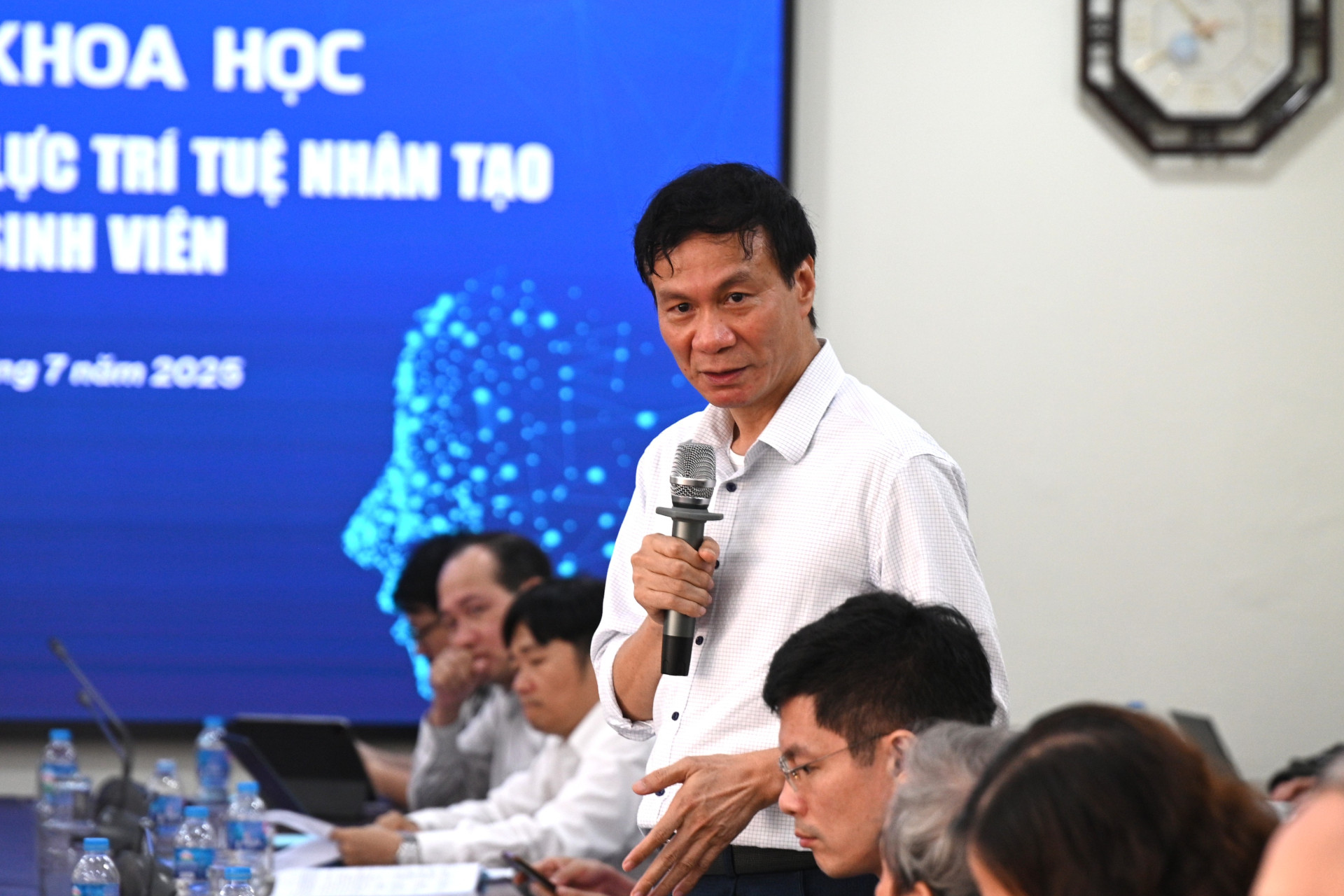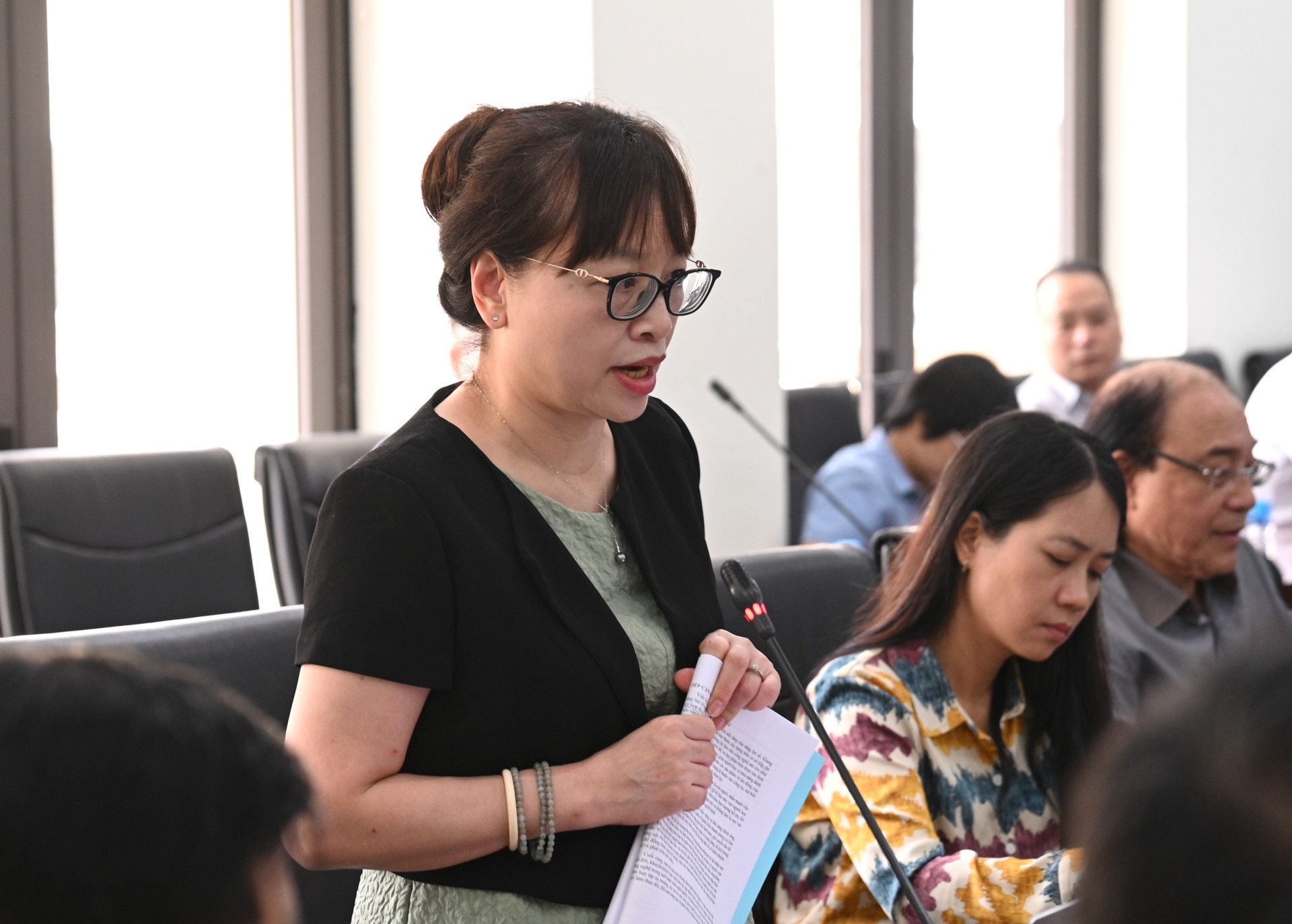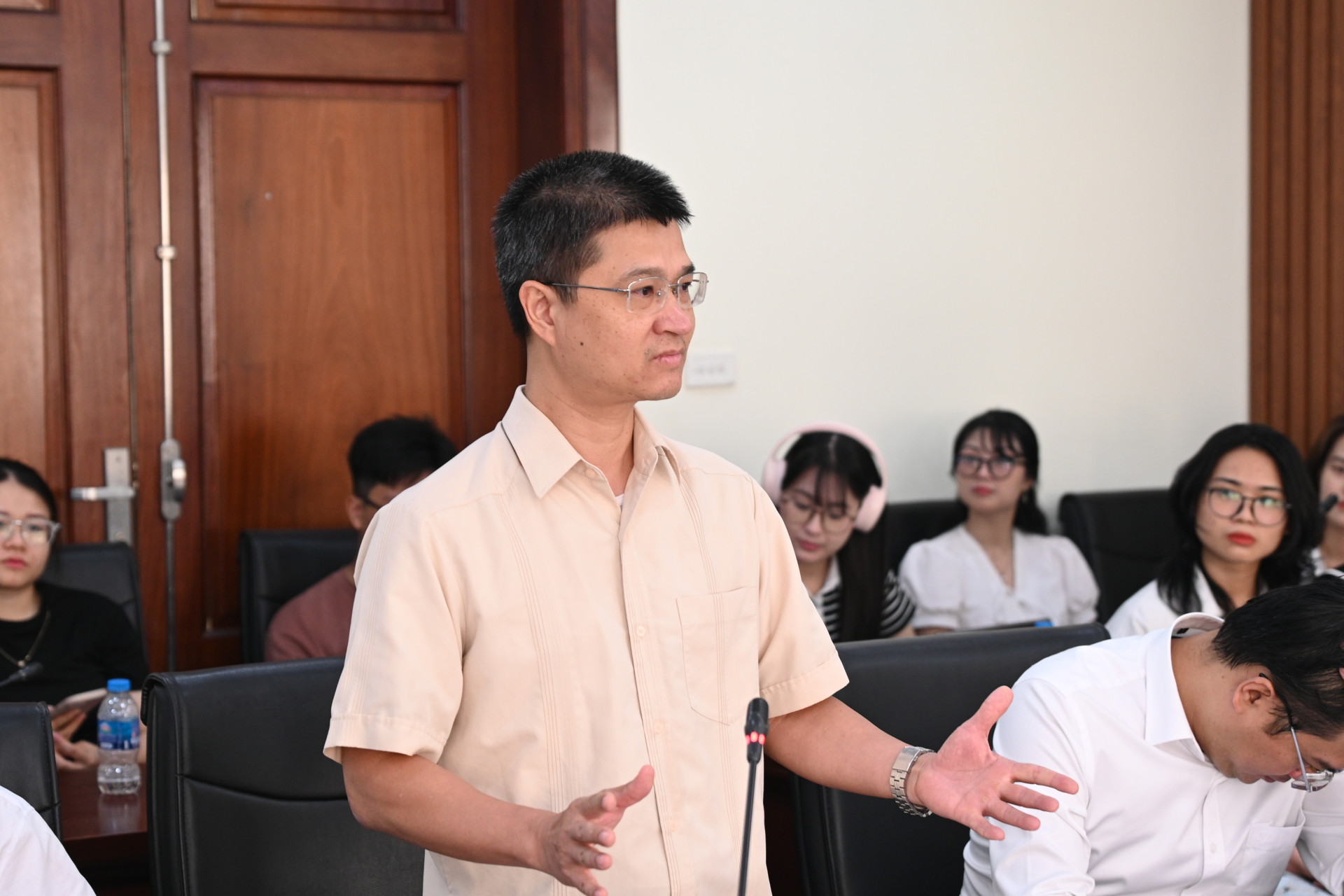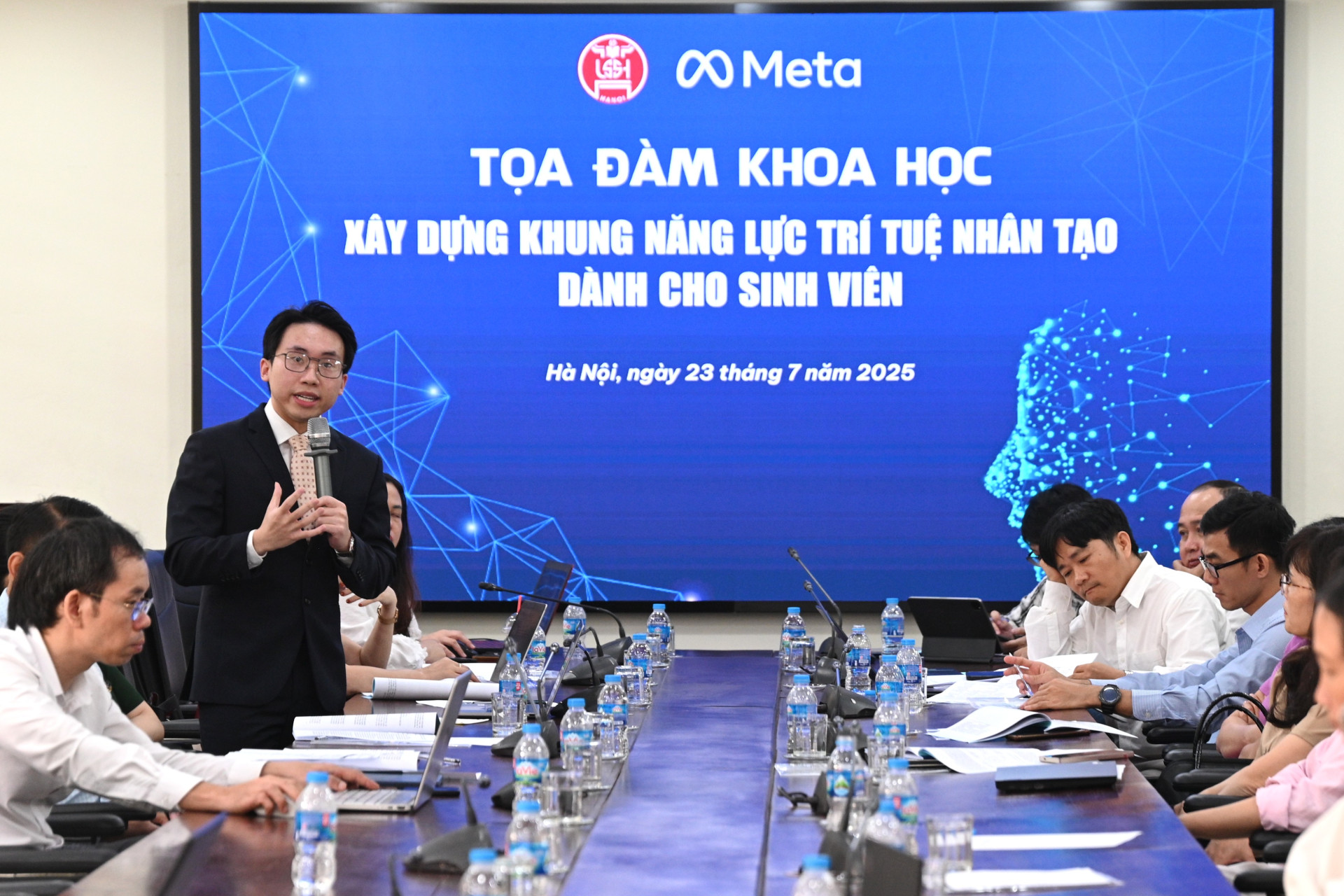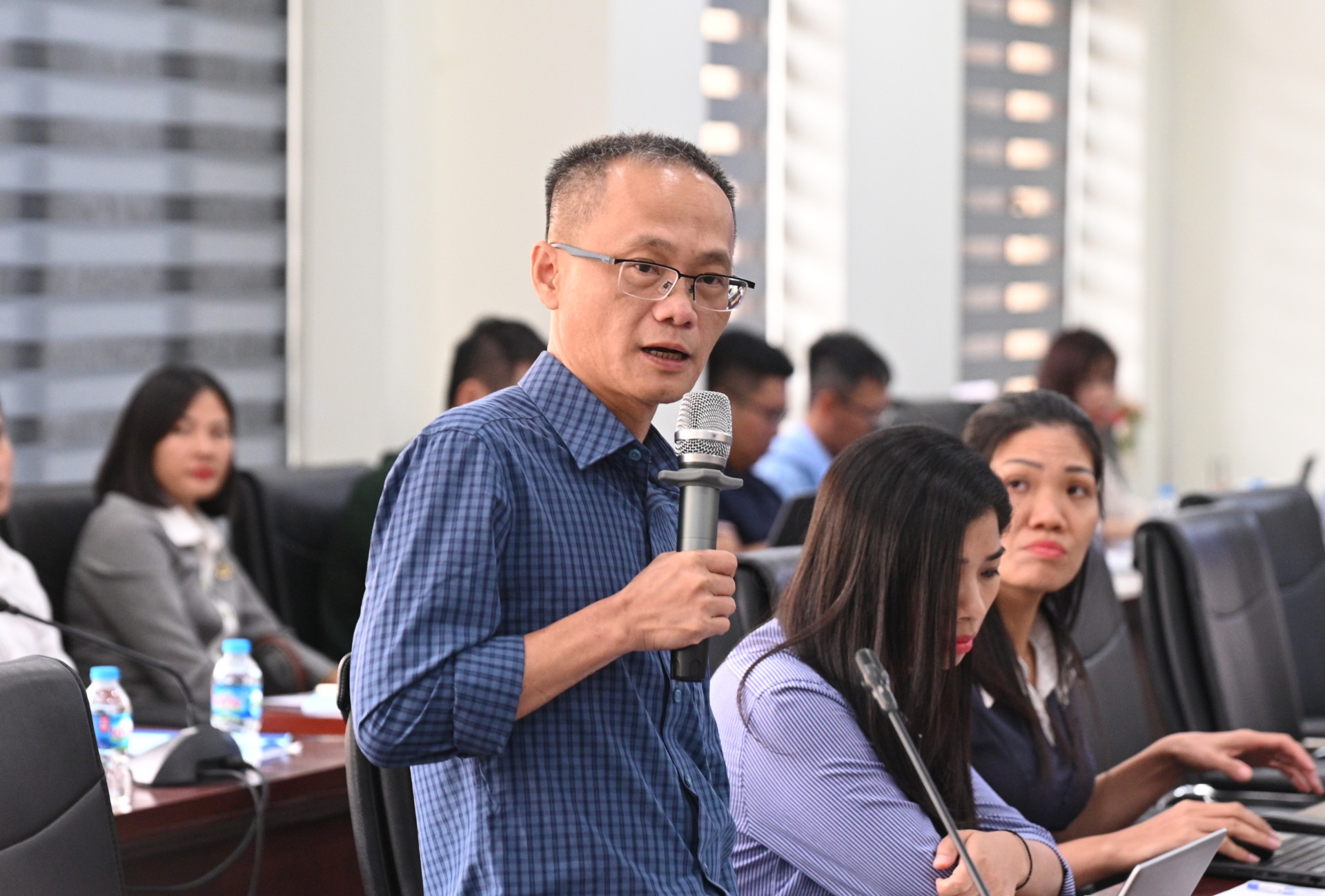The seminar aimed to discuss the need for an AI competency framework for students, as well as to gather feedback and suggestions from experts and scientists on the AI competency framework for students, which is being jointly developed by the University of Social Sciences and Humanities and Meta Group.
The seminar's topic attracted the participation and discussion of over 100 delegates, including leaders and experts from the Ministry of Education and Training, the Ministry of Science and Technology, the Ministry of Culture, Sports and Tourism, the Vietnam Association of Scientific and Technological Information; representatives from Meta Group; universities in Hanoi and Ho Chi Minh City, and research institutes. The seminar also received attention from more than 20 technology companies, media outlets, and many experts in AI research and teaching, as well as university students.
The need to equip students with digital and AI skills in the digital age.Today, the rapid rise of artificial intelligence (AI) is reshaping how we work, learn, and innovate. AI is no longer a concern of the future but has become an urgent requirement in the present.
According to experts at the seminar, artificial intelligence is increasingly becoming an integral part of life, requiring educational systems to proactively equip learners with the capacity to use and co-create AI responsibly, effectively, and ethically. Integrating AI learning objectives into formal education programs is essential to help students and faculty access AI safely, meaningfully, and to be ready to adapt to a rapidly digitally transforming society. Educational institutions that fail to meet this requirement will struggle to maintain relevance and competitiveness in the new context.
Professor Hoang Anh Tuan - Rector of the University of Social Sciences and Humanities, and Head of the collaborative project between USSH and Meta, delivered the opening remarks at the seminar.
Mr. Dang Van Huan - Deputy Director of the Department of Higher Education, Ministry of Education and Training According to Mr. Dang Van Huan, Deputy Director of the Department of Higher Education, Ministry of Education and Training, the application of AI in training and management activities is currently raising many issues such as: how to assess and verify data and information to ensure the accuracy and transparency of AI-generated content; issues in defining the roles of teachers and learners; and ethical issues in the application of AI… These are issues of great concern at educational institutions in Vietnam.
Mr. Ruici Tio - Program Manager for Safety and Integrity Policy in the Asia Pacific Region, Meta Group, spoke at the panel discussion.
According to Mr. Tran Van Tung, Chairman of the Vietnam Association for Science and Technology Information and former Deputy Minister of Science and Technology, artificial intelligence has changed thinking and the implementation of tasks in all fields.
According to experts, the University of Social Sciences and Humanities has demonstrated pioneering spirit in implementing the Digital Competency Framework issued by the Ministry of Education and Training in early 2025.
The Artificial Intelligence competency framework for university students, developed by the university in collaboration with Meta Group, is a timely response to the urgent need for AI to become an indispensable part of academic, professional, and social life. This framework was developed based on consultations with experts, researchers, lecturers, and students, while also referencing widely used international digital and AI competency frameworks. The university has promptly adjusted 28 training programs, revising the knowledge foundations to fully meet the new requirements for artificial intelligence competency, affirming the university's commitment to providing the best value for learners and the community.
Proposing 06 domains of artificial intelligence competence for students.The Artificial Intelligence Competency Framework for Students is the result of a collaboration between the University of Social Sciences and Humanities (directly implemented by the Faculty of Information and Library Science) and Meta Corporation within the framework of the project "Application of Artificial Intelligence in Teaching, Learning and Research".
To develop an Artificial Intelligence Competency Framework for students, the expert team surveyed and assessed the AI competencies and development needs of 1,000 students, trainees, and researchers to provide a practical basis. Simultaneously, the research team referenced widely used competency frameworks worldwide, thereby developing a framework suitable for students in Vietnam.
Associate Professor Dr. Do Van Hung - Head of the Department of Information and Library Science, and Deputy Head of the collaborative project between the University of Social Sciences and Humanities and Meta Group - co-chaired the discussion session.
Accordingly, the research team proposed an AI Competency Framework comprising Long-Term Adaptive Competencies and Specific AI Competencies. Experts from the University of Social Sciences and Humanities proposed six competency domains: Understanding AI and Data (How does AI work?), Critical Thinking and AI Evaluation (How can I evaluate AI output?), Ethics and Responsibility in AI Use (How can I ensure AI is used ethically and responsibly?), Human-Centered Approach, Emotional Intelligence, and Creativity (How can humans remain at the center?), AI Applications for Professionals (How can I apply AI in a specific context?), and AI System Design and Development (How can I create AI systems?). Each competency domain is structured into four levels of development: proficiency, fluency, expertise, and mastery, aligning with students' evolving abilities throughout their studies and their careers after graduation.
Based on a vision of students as responsible citizens and co-creators of AI, the competency framework emphasizes the role of critically evaluating technological solutions, recognizing social responsibility in the AI age, promoting lifelong learning, and developing inclusive and sustainable AI solutions.
The AI competency framework for students was developed by a team of experts from the University of Social Sciences and Humanities, Vietnam National University, Hanoi.
Lecturer Tran Duc Hoa from the Faculty of Information and Library Science shared insights on the context, importance, and necessity of developing an AI competency framework for students.
AI competency framework and practical requirements
The seminar received numerous contributions from experts in technology, education, and businesses/employers regarding the content of the Artificial Intelligence Competency Framework for Learners. According to Professor Nguyen Quy Thanh (Rector of the University of Education, Vietnam National University, Hanoi), the AI competency framework needs to integrate a classification and arrangement system for learning objectives (bloom) currently used in universities. Furthermore, the self-learning ability of students should be emphasized within this framework.
Prof. Dr. Nguyen Quy Thanh - Rector of the University of Education, Vietnam National University, Hanoi
Associate Professor Dr. Nguyen Thi Que Anh, former Rector of the University of Law, Vietnam National University, Hanoi, emphasized the individualization of learners in training programs, especially in building a framework of artificial intelligence competencies for learners. Associate Professor Que Anh also assessed that the human-centered approach, emotional intelligence, and creativity in building this competency framework is a novel aspect of the experts' work.
Assoc. Prof. Dr. Nguyen Thi Que Anh - Former Rector of the University of Law, Vietnam National University, Hanoi
Mr. To Hong Nam, Deputy Director of the Department of Science, Technology and Information, Ministry of Education and Training, contributed his opinions at the seminar. According to Dr. Nguyen Gia Hy (Member of the USSH-Meta collaboration project; lecturer in Artificial Intelligence at Swinburne University - Australia, Founder of SkillPixel), businesses are currently looking to recruit people outside their specialized fields, but they also require candidates to have a fairly proficient ability to use AI.
If this competency framework is widely applied in universities, it will create a very suitable and convenient environment for businesses. Employers will know the overall capabilities of candidates and their ability to use AI in a specific field.
Dr. Nguyen Gia Hy - Member of the USSH-Meta collaboration project; lecturer in Artificial Intelligence at Swinburne University (Australia), AI research fellow at Deakin University, founder of SkillPixel
Highly appreciating the practicality of the AI Competency Framework project for students, Dr. Nguyen Ngoc Binh (Head of the Linguistics Department, University of Social Sciences and Humanities) stated that with this framework, universities will have a basis to build output standards for students, meeting the requirements of the labor market. In addition, Dr. Nguyen Ngoc Binh also noted the need to specify the communication and collaboration competencies of AI, and the ability of learners to develop AI application skills in their studies and lives.
It is known that in 2025, the Linguistics Department of the University of Social Sciences and Humanities opened a new specialization: Language and AI. This not only combines linguistic science and digital technology, but also serves as a foundation for developing language experts with technological thinking, data analysis skills, and content creation abilities in the digital world. The application of the Artificial Intelligence Competency Framework for students is a crucial element in clearly defining the learning outcomes for students pursuing this new specialization.
